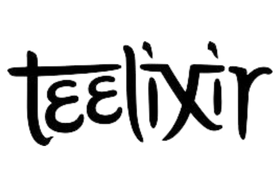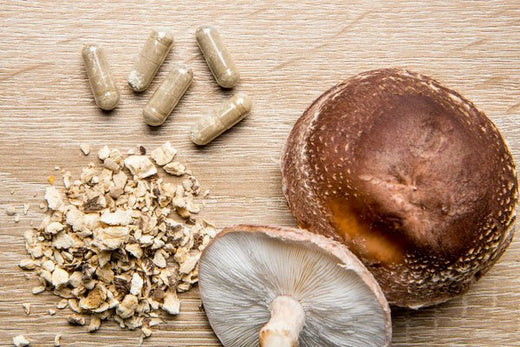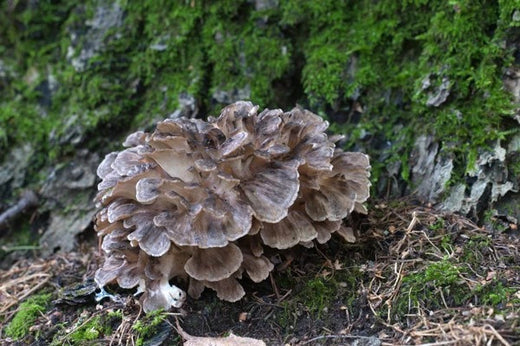7 Methods to Prevent Burnout, Recharge Your Energy, and Manage Stress

Brene Brown once said, "In a culture where exhaustion is considered a symbol of status, it takes courage to prioritise rest and leisure."
This statement holds true in today's Western society.
We live in a world that promotes working harder and longer, constantly pushing ourselves to the limit. We grind and hustle, working tirelessly until we exhaust ourselves and reach a point of burnout.
Then, the symptoms of burnout appear, manifesting as low energy, fatigue, heightened stress, mental fog, irritability, impatience, decreased libido, depression, anxiety, and more.
In our culture, striving for complete exhaustion and depletion is often regarded as a necessary path to "success" or "making it," which, upon reflection, seems absurd.
In Japanese culture, there is a term called "Karoshi," and in Chinese culture, "Guolaosi" - both translate to "death by overwork" - a recognized phenomenon in which individuals literally die from working themselves too hard.
Could the English equivalent be adrenal burnout?
Perhaps.
When we choose to compromise our own health, longevity, and mental well-being for short-term achievements such as financial success, job titles, promotions, or status symbols, what we truly sacrifice is long-term happiness and quality time with the people we cherish the most - our children, friends, and family.
We all desire to lead a fulfilling and vibrant life, filled with energy, passion, and drive, accompanied by remarkable and thrilling experiences.
So, how can we achieve this without succumbing to burnout in today's modern era?
Furthermore, how can one recognize the signs of adrenal burnout or fatigue?
Table of Contents
-
What is Burnout?
-
Types of Stress
-
How can I determine if I am experiencing burnout?
-
Understanding Jing and the Stress Response
-
Symptoms of Burnout
-
The Millennial Burnout Epidemic
-
The 12 Phases of Burnout Syndrome (As Described by Psychologists)
-
The Impact of Burnout on Ourselves and Our Relationships
-
7 Methods for Preventing Burnout and Recharging Your Energy
-
Conclusion
-
References

What is burnout?
Burnout, also known as adrenal burnout, occurs when the body is under chronic and excessive stress.
Stress lies at the root of major diseases that are fatal to humans, including cancer, heart disease, stroke, Alzheimer's, organ failure, and infections (1-5). Essentially, by subjecting ourselves to constant stress, we are essentially harming ourselves both literally and metaphorically.
Types of Stress
There are two types of stress that humans experience: short-term (hormetic) stress and long-term (chronic) stress.
Hormetic Stress (Positive)
Surprisingly, there is a positive form of stress known as "hormetic stress," which can have long-term health benefits. Examples of hormetic stressors include brief periods of intense exercise (such as HIIT), exposure to hot and cold temperatures (such as infrared saunas and ice baths), and consumption of antioxidant-rich foods like Chaga mushroom, cacao, and broccoli.
These short bursts of stress are necessary for humans to develop resilience, tolerance, and adaptability. However, problems arise when we are constantly exposed to stress triggers from various sources, such as the environment, emotions, relationships, work, deadlines, expectations, traffic, chemicals in products, pesticides in food, and lack of sleep. This constant exposure prevents us from entering the adaptive phase and instead leads us into the exhaustion phase.
Chronic Stress (Negative)
Chronic stress is the detrimental form of stress. It continually drains and weakens us, pushing our adrenal glands into overdrive, ultimately resulting in burnout and the onset of illness or disease.
Furthermore, chronic stress triggers inflammation and disrupts the balance of our entire body (homeostasis). It reduces sex hormone production, slows down metabolism, impairs cellular energy production, and keeps our immune system in a constant state of alertness, as if a life-threatening event is occurring.
All these factors leave us susceptible to actual pathogens and contribute to illness in our lives."

How can I determine if I am experiencing burnout?
At some point in our lives, we have all encountered varying degrees of fatigue, exhaustion, constant tiredness, or burnout. Whether it's the pressure of school exams, meeting tight deadlines, adjusting to parenthood, coping with family expectations, or running a business, these situations can all contribute to burnout.
Ironically, the pursuit of money, fame, or societal status often backfires because our best work is usually achieved when we are energised. Our optimal performance arises when we are filled with energy, vitality, enthusiasm, connectedness, and when our creative energy flows effortlessly. It's that feeling when time slips away, and we produce remarkable outcomes.
We can all relate to that experience.
To consistently achieve this state, it is essential to replenish our "Jing," which is an ancient Taoist concept representing our life force energy.

Understanding Jing and the Stress Response
In Western terminology, Jing refers to our lifelong energy reserve, which is significantly influenced by the chronic stress we encounter.
Stress triggers the release of stress hormones—cortisol, adrenaline, and noradrenaline—from the adrenal glands, which are shaped like Santa's hat and located atop the Kidneys. These hormones initiate the fight-or-flight response, a primal survival mechanism that prepares us to confront or evade threats.
During this process, glucose is mobilised from our muscles to provide immediate energy in our bloodstream for fighting or fleeing. Additionally, energy and blood flow are redirected from our digestive and reproductive organs to our heart, lungs, and muscles. Our heart rate and blood pressure increase, and we experience that sudden surge of energy we have all felt, whether due to a sudden car appearing, a fright, or encountering movement in the dark.

Symptoms of Burnout
Fatigue and burnout manifest in various ways, including persistent tiredness, difficulty sleeping, inability to relax, sluggish digestion, autoimmune issues, weight gain, slow recovery, decreased libido, brain fog, frequent illnesses, dull hair and nails, wrinkles, poor complexion, anxiety, depression, lack of motivation, and diminished excitement, to name a few.
In Western culture, when these burnout symptoms arise, we often mistakenly believe that the solution is to continue pushing ourselves. We may think, "This is normal," "Everyone I know feels like this," or resort to pharmaceutical drugs, stimulants, or supplements to keep going, never addressing the root cause. We fail to recognize the importance of safeguarding, preserving, and nourishing our Jing.
The Millennial Burnout Epidemic
As millennials, we may not even realise we are stressed or experiencing burnout because, until recently, burnout, or more precisely, adrenal fatigue, was not widely recognized as a medical condition.
We lack exposure to and examples of what a healthy work-life balance entails. Social media, in particular, bombards us with individuals and quotes promoting the hustle as the new glamorous lifestyle. Taking a break is seen as a sign of weakness, and the focus is often solely on money, status, showcasing one's hard work, and flaunting extravagant possessions. If we don't conform to this model of success, we feel inadequate and deprived of the external recognition and approval we yearn for.
All these factors have deeply ingrained beliefs in us, making it seem nearly impossible to lead a fulfilling, successful, and purpose-driven life and career. So much of our identity and self-worth is tied to what we do—we become human doings instead of human beings. We become so absorbed in working hard, proving our value and worth, and striving for victory that we eventually grow weary.
Yet, as the old Taoist saying wisely advises, "It is okay to become tired but never to become exhausted."
Consequently, we distance ourselves from our true selves, our families, and our relationships. We become too exhausted to be present, and we withdraw and detach, merely trying to survive."

The 12 Phases of Burnout Syndrome (As Described by Psychologists)
The 12 Phases of Burnout Syndrome were developed by psychologists Herbert Freudenberger and Gail North and popularised by Hamza Khan in his TEDxUTSC Talk titled "The Burnout Gamble."
These stages, outlined by scientists, represent the progression from initial signs to complete burnout syndrome:
- Compulsion to Prove Oneself: Obsessively demonstrating worth, often affecting highly dedicated employees who readily take on responsibilities.
- Working Harder: Inability to switch off from work.
- Neglecting Personal Needs: Erratic sleeping patterns, disrupted eating habits, and a lack of social interaction.
- Displacement of Conflicts: Dismissing problems, feeling threatened, panicky, and jittery.
- Revision of Values: Distorted values, dismissing friends and family, considering hobbies irrelevant, with work becoming the sole focus.
- Denial of Emerging Problems: Intolerance, perceiving colleagues as incompetent, lazy, demanding, or undisciplined. Social interactions become more difficult, accompanied by cynicism, aggression, and attributing problems solely to time pressure and work, ignoring personal life changes.
- Withdrawal: Limited or no social life, seeking relief from stress through alcohol or drugs.
- Odd Behavioral Changes: Noticeable changes in behaviour, causing concern among friends and family.
- Depersonalization: Viewing oneself and others as lacking value, disregarding personal needs.
- Inner Emptiness: Feeling empty inside and seeking activities such as overeating, sex, alcohol, or drugs to fill the void. These activities often become excessive.
- Depression: Feeling lost, uncertain, and exhausted, perceiving a bleak and dark future.
- Burnout Syndrome: Can manifest as a complete mental and physical collapse, requiring comprehensive medical attention.
These experiences, outlined by psychologists, represent a transformative journey for individuals. Over time, their personalities gradually change, ultimately becoming someone they may not wish to be.

The Impact of Burnout on Ourselves and Our Relationships
Dr. Joe Dispenza explores how prolonged emotions can influence our mood and shape our personality traits.
Consider this scenario: Your alarm doesn't go off, you realise you're out of coffee, and the traffic is terrible, making you late for work. All these factors trigger a stress response, leaving you irritated, flustered, and defeated—setting the tone for your entire day.
Arriving at work late and already feeling behind, no amount of caffeine or skipping breaks seems to help you catch up with your workload. Consequently, you go home in the same mood.
This mood becomes ingrained in your body, and the next day, even if you wake up on time, you carry the fear and apprehension from the previous day. You constantly worry about catching up and the overwhelming tasks ahead.
This mood gradually becomes your new normal.
Your daily commute to work becomes fraught with tension, as you constantly feel short on time, inadequate, and stressed.
Over a short period, this mood solidifies into your personality traits, leading to irritability, impatience, and a lack of presence in your interactions. You begin to snap at your partner, have less time for friends and family, and consistently focus on the future, neglecting the present moment. You no longer prioritise self-care, feeling misunderstood and isolated. As a result, you not only experience burnout, but you also withdraw from loving, nurturing, and supportive relationships.
Isolation not only deprives us of the power of human connection to alleviate the stress response but also leads to unhealthy behaviours such as substance abuse. We may lash out, retreat into solitude, engage in self-deprecating thoughts, or bury ourselves in work to avoid acknowledging the absence of emotion and joy.
Numerous studies demonstrate that healthy and loving relationships are fundamental to leading a long and healthy life.
When we overwork and burn ourselves out, we also risk burning our relationships.
We cease to invest love, effort, and emotional energy into the very people who can uplift us, remind us of our importance, worthiness, and love, regardless of our job title, end-of-day reports, or salary.
By isolating ourselves from these relationships, communities, and our tribe, we deny ourselves the opportunity to fully immerse in the present moment and experience relief from stress through oxytocin—the hormone released when we connect with others. Simultaneously, cortisol, the stress hormone, decreases.
When we spend time with people we love, sharing laughter, stories, and creating cherished moments, we boost our immune system, improve hormonal balance, and reduce inflammation.
Simply put, connecting with other human beings can switch off the stress response.
Moreover, chronic stress diminishes our love for our jobs and careers.
The fire, passion, and drive gradually fade, leaving us with a sense of purposelessness in our chosen profession. This further exacerbates burnout symptoms and prevents us from delivering our best work, being of service, and finding fulfilment and excitement in our daily work routine.
As Hamza Khan aptly states in his inspiring TED talk, "the absence of fire is [often] the problem, not the fire itself."

7 Methods for Preventing Burnout and Recharging Your Energy
To avoid burnout and maintain our optimal performance, it is crucial to consistently replenish our energy levels every day. The following 7 steps outline how we can achieve this.
Remember that rejuvenating your energy is a comprehensive process that cannot be achieved overnight. You won't wake up magically brimming with energy and feeling like a child. It is a journey and a gradual process that requires patience and self-care as we dedicate time to heal and restore our adrenals.
We must also reassess our beliefs and perspectives regarding rest, recovery, and self-love. It is time to embrace yin practices such as downtime, relaxation, unplugging, and napping without criticising ourselves or associating them with weakness, laziness, or lack of productivity.
Life is about finding balance. The Taoist philosophy represented by the Yin Yang symbol illustrates the interplay between chaos and order. We need to balance the chaos in our lives—the busyness, structure, to-do lists, and constant activity (Yang)—with the order of our lives—the relaxation, recuperation, rest, and simply being (Yin).
Here are seven ways you can replenish your energy, establish new habits to restore your Jing (life essence), and acknowledge that as human beings, we require and deserve rest and rejuvenation for optimal health and longevity.
Embrace the Power of Napping
In Western society, napping is often seen as a luxury or something only children, mothers, or the elderly do. We tend to rely on stimulants throughout the day and place excessive expectations on our nighttime sleep to recharge us. Perhaps we don't even prioritise sleep at all?
However, napping is incredibly beneficial for both our performance and well-being. Scientific research has shown that napping:
- Enhances alertness and logical reasoning
- Improves reaction time
- Reduces subjective fatigue and sleepiness
- Enhances accuracy
- Improves nighttime sleep quality
Sleep experts like Nick Littlehales recommend setting an alarm for 10, 20, or 30 minutes and allowing yourself time to recharge. This simple yet undervalued "hack" can make a significant difference. Personally, I find 30-minute naps to be the most rejuvenating.
A NASA study conducted on long-haul pilots revealed that a 26-minute nap improved performance by 34% and alertness by 54%.
The purpose of napping is not solely to sleep but rather to enter a semi-conscious state that allows the body to recover mentally. To enhance your nap experience, try incorporating Binaural beats while you relax.
If napping seems impossible due to your beliefs or circumstances, studies have shown that even taking a "rest-break" without any tasks can benefit cognitive functioning and performance. Instead of reaching for a cup of coffee at 3 pm, try switching off for 10-30 minutes, listen to soothing music, read a book, gaze at the sky, or take a walk in the park—anything to shift yourself out of the active, Yang state and give your brain a breather.
Evaluate Your Consumption of Stimulants
As much as many of us love coffee and caffeine, the truth is they deplete our Jing (adrenal energy) and merely mask our sleepiness or fatigue. Furthermore, caffeine stimulates the adrenals, places additional stress on our bodies, and interferes with the absorption of essential nutrients like iron and zinc.
It is important to assess when we genuinely "need" stimulants versus when we simply "want or crave" them. This evaluation is a valuable tool in preventing and reversing burnout.
For instance, when everyone in the office is getting a coffee, take a moment to check in with yourself. Do you feel fine? Are you still feeling good after your first cup of coffee in the morning, realising that you don't truly need a second one?
Experiment with replacing caffeine with alternatives such as high-quality Jing herbs like Cordyceps mushroom, Chaga mushroom, Lion's Mane mushroom, yerba mate tea, roasted dandelion, matcha green tea, or chai.
Establish boundaries for yourself, such as "I will enjoy coffee only three times a week" or limit your intake to just one cup per day, and stay disciplined in honouring those boundaries.
Be mindful of your habits
Assessing stimulants also includes considering energetic stimulants such as our electronic devices, social media, and the people around us. Our phones provide access to addictive dopamine-triggering platforms, YouTube, apps, TV shows, and more, which constantly engage our brains. Even though we may perceive this as "downtime and relaxation," our brains are still actively processing information.
Are there individuals in your environment who stimulate negative emotions like anger, frustration, resentment, fear, or hatred? These emotions drain your energy.
Evaluate other factors in your surroundings that may cause energy and Jing depletion and eliminate them. Set time limits for social media use (which is now easily manageable with features like IG's usage tracking) or replace scrolling with activities like reading or writing that help release negative emotions and thoughts about those individuals if removing them completely isn't possible."
Integrate a Daily Yin Practice
While Western society promotes vigorous Yang activities like HIIT sessions, boot camps, gym workouts, and certain types of yoga, it's important to balance these with a Yin practice. In addition to enjoying your daily intense workout, make sure to cultivate a Yin practice that replenishes your energy and restores balance.
Some wonderful Yin practices to consider include:
- Taking nature walks
- Grounding yourself
- Connecting with loved ones
- Journaling
- Reading
- Stretching
- Engaging in slow flow yoga
- Exploring creative outlets such as drawing, painting, or writing
When we allow ourselves the time and space to slow down and simply "be" instead of constantly "doing," we fill ourselves up, shift from the sympathetic fight-or-flight response to the relaxing parasympathetic nervous system, which promotes rest and digestion. Personally, I prefer to engage in my Yin practice in the late afternoon or evening as it sets me up for a restful night's sleep by promoting relaxation and contentment without excessive stimulation.
Incorporate Adaptogens Into Your Diet
To complement the previous suggestions, it is highly beneficial to incorporate adaptogenic herbs and blends into your daily life. Adaptogenic herbs like He Shou Wu root, Cordyceps mushroom, Schizandra berry, and Reishi mushroom are considered Jing tonic herbs as they replenish energy, support the adrenals, and nourish the organs.
Jing herbs work to enhance calmness, alertness, relaxation, and unity. As the name suggests, they help you adapt to the stressors in your life. It's important to note that tonic herbs and adaptogens, unlike the "lock and key" model followed by the medical and pharmaceutical industry, possess their own power and intelligence. Jing herbs improve and balance multiple organ systems, including the adrenals, immune system, endocrine system, brain, and more.
Adaptogenic herbs have varying actions and adapt to your specific state of being and needs. Depending on your constitution, level of depletion, and requirements, these herbs can calm and relax you or provide energy and alertness.
Nourish Your Adrenals with Nutrient-rich Foods
Nutrition, along with movement, hydration, and sleep, forms the foundation of optimal well-being. Consuming whole, nutrient-rich foods provides essential vitamins such as C and B vitamins, magnesium, zinc, and beneficial bacteria, which are crucial for utilising nutrients and converting them into energy.
Processed foods, on the other hand, lack nutrients and hinder hormone production, cell regeneration, tissue repair, immune function, and quality sleep. To support your adrenals and combat fatigue and adrenal burnout, it's essential to obtain nutrients from real, wholesome food sources. Take a moment to evaluate your food choices and consider whether they come from fertile, nutrient-rich sources or packaged, processed options.
It's also worth noting that low iron levels, low thyroid function, and high inflammation can contribute to fatigue and adrenal burnout. If necessary, a blood test can help assess these factors and determine if additional support is required.
Reduce and Eliminate Excessive Stressors from Your Life
While incorporating the previous recommendations is valuable, it's equally important to address and remove the sources of stress in your life. Imagine a fire and the resulting smoke as a metaphor for stressors and their impact on your well-being.
Identifying stressors that do not serve you and only contribute to your stress is not always an easy task. Here are some points to consider:
- Are you in a relationship that causes constant stress and feelings of inadequacy?
- Do you have toxic relationships with friends, family, colleagues, etc., that either drain you or serve you?
- Do you have an unfulfilling job that leads to increased stress and burnout?
- Do you set expectations on situations and individuals and then stress about them?
- Do you frequently engage in scenarios in your mind, whether in the past or present?
- Do you have a tendency to overthink chronically?
- Are you consuming food and beverages from plastic containers?
- Do you regularly consume alcohol and drugs?
- Do you reside in a highly polluted area or work with toxic products?
- Do you work night shifts?
- Do you consume non-organic/conventional produce?
- Do you drink tap water?
This step can be challenging and may require introspection, reassessing your choices, identifying self-sabotaging behaviours, seeking assistance, and stepping outside your comfort zone. Removing these stressors from your life not only alleviates pressure on your body and mind but also significantly benefits your immediate and long-term health and well-being.
Cultivate a Shift in Attitude
Changing your attitude can be a powerful tool in reducing and eliminating stressors, preventing Jing depletion, and facilitating the process of replenishing your energy.
For example, instead of feeling frustrated when stuck in traffic, try reframing the situation as an opportunity for personal growth:
- Listen to a podcast on a topic you're interested in.
- Enjoy your favourite music and have a mini dance party in the car.
- Practise deep breathing techniques like box breathing.
- Engage in visualisation exercises and imagine your dream life.
- Cultivate gratitude by reflecting on what you love about yourself and your life.
- Create space in your life for positive experiences instead of complaining and becoming frustrated.
Personally, when faced with traffic or delays, I remind myself that these situations occur for a reason beyond my control. This simple act of "letting go" allows me to avoid emotional exhaustion, preserve my energy, and approach the situation with a clear mind rather than being consumed by stress.
Time is a precious resource, so use those periods of waiting to nourish and rejuvenate yourself—be fully present in the moment. With so much happening around us constantly, finding moments to pause and care for yourself can be challenging.
Remember, finding the right balance is crucial. We want to maintain a healthy drive, passion, and desire without allowing the fire to burn out and consume everything we hold dear.
Conclusion
Consciously incorporate these seven practices into your daily or weekly routine. Schedule them in your calendar to ensure their consistent implementation, allowing you to replenish your Jing, restore your energy, and achieve the experiences and goals you desire.
Take small steps and gradually integrate each new practice over time. While it may feel unfamiliar and daunting at first, this process helps you shift from being a "human doing" to a "human being," as Hazma eloquently puts it. The goal is to burn brightly without burning out.
Remember, your well-being is a priority, and these practices are essential for maintaining balance and vitality in your life."
Written by Eliza Hedley
Eliza is a health, mindset and abundance enthusiast obsessed with helping millennial's experience living at a higher level.
Her relaxed new age approach and understanding of nutrition and wellness sees her empowering and coaching individuals to understand that their health is the ultimate asset. Upon experiencing first hand the power and place of tonic herbalism and medicinal mushrooms in everyday life, Eliza’s become an adaptogen fangirl and feels their utilisation in today’s world is essential for abundance and wellbeing.
Website: https://theholisticsister.com
Instagram: @elizahedley_
References and Studies
The Top 10 Causes of Death -
https://www.who.int/news-room/fact-sheets/detail/the-top-10-causes-of-death
Wolff, H. G. (1953). American lecture series: The Bannerstone division of American lectures in physiology: Vol. 166. Stress and disease. Charles C Thomas Publisher.
https://doi.org/10.1037/11785-000
Lin, M., Beal, M. Mitochondrial dysfunction and oxidative stress in neurodegenerative diseases. Nature 443, 787–795 (2006). https://doi.org/10.1038/nature05292
Finkel, T., Holbrook, N. Oxidants, oxidative stress and the biology of ageing. Nature 408, 239–247 (2000). https://doi.org/10.1038/35041687
Oxidative Stress and Vascular Disease - https://www.ahajournals.org/doi/full/10.1161/01.ATV.0000150649.39934.13
The 12 Stages of Burnout by Hamza Khan - http://theburnoutgamble.com/2015/10/23/the-12-stages-of-burnout/
Breaking the Habit of Being Yourself by Dr Joe Dispenza. https://www.amazon.com/Breaking-Habit-Being-Yourself-Create/dp/1401938094/
Friends Nourish the Body and Soul. https://www.bluezones.com/2012/04/friends-nourish-the-body-and-soul/
Social relationships and physiological determinants of longevity across the human life span. PNAS January 19, 2016 113 (3) 578-583; first published January 4, 2016
https://doi.org/10.1073/pnas.1511085112
The Burnout Gamble | Hamza Khan | TEDxUTSC - https://www.youtube.com/watch?v=iEjukHJybm8
Nick Littlehales Sleep and Recovery Blog. https://www.sportsleepcoach.com/recovery-blog/
Assessing the benefits of napping and short rest breaks on processing speed in sleep-restricted adolescents. J Sleep Res. 2017 Apr;26(2):219-226. doi: 10.1111/jsr.12497. Epub 2017 Jan 24.
Benefits of napping in healthy adults: impact of nap length, time of day, age, and experience with napping. https://doi.org/10.1111/j.1365-2869.2008.00718.x
The Burnout Gamble by Hamza Khan. https://www.amazon.com/Burnout-Gamble-Achieve-Building-Resilience/dp/1773029843/






